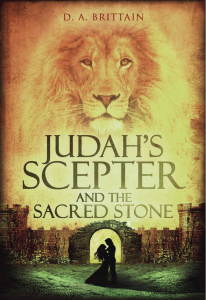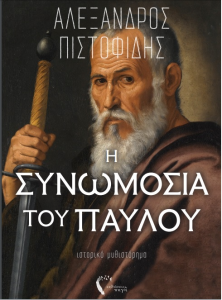I used to do astrological birth charts for people and I thought I was pretty good at it. Each one required hours of work, too, since I was able to work with so much detail: sun signs, ascendants, house cusps, positive and negative angular relationships, etc etc etc. Even people who did not believe in astrology admitted that my birth chart readings were often accurate. Some sceptics, on the other hand, pushed what I considered to be an unreasonably narrow interpretation on what I had said to “disprove” my claim. My interest in the field was sparked by a hitch hiker I picked up one day while driving through “hippie” commune territory in northern Queensland: just like the Samaritan woman who was astonished when Jesus was able to tell her all about her life, so I was astonished that this stranger was so quickly able to tell me “all about myself”, even my time of birth. I had to find out how he did it and that eventually led me to believing I was investigating how astrology worked.
I was too smart, of course, in my own mind to believe that the planets had some sort of mystical powers on persons so I convinced myself that I was trying to understand the apparently hidden scientific reasons it “really worked”.
With that background I bookmarked Mano Singham’s blogpost, Are all mentalists frauds?, back in January this year and finally today I managed to catch up and read it.
[T]he psychology department chair called me into his office one day, closed the door, sat me down, and proceeded to dress me down for doing palm reading, for taking people’s money under false pretenses, that there was nothing to this paranormal stuff, etc. I sat there listening to him and after he calmed down I said, “would you like me to read your palm?” So he stuck his hand out and I did a reading on him. Then I left.
Two weeks later he called me back into his office, shut the door, sat me down, stuck his hand out, and said “tell me more”!
This really showed me how powerful this stuff can be. — Ray Hyman in the interview.
Mano nails what lies at the core of their “powers”. At least what he says coheres perfectly with my own experience and explanation. At one point Mano quotes Ray Hyman, an erstwhile palm reader, in an interview with a psychologist:
By high school, even though I was a skeptic about most things, I believed in palm reading because it seemed plausible to me since the palm is physically connected with the body.
…
[T]he late Stanley Jaks convinced me to do a palm reading on someone and tell them the exact opposite of what I would normally say. So I did this. If I thought I saw in this woman’s palm that she had heart trouble at age 5, for example, I said, “well, you have a very strong heart,” that sort of thing. . . . . She told me it was the most impressive reading she had ever had.
(My emphasis)
We see what we expect to see.
The scales began to fall from my own eyes when I faced up to the fact that the more details I included in my birth charts the more opportunities I was creating to find points of contact with the subject.
I also undertook detailed comparison of the various sun signs and what I had till then too often swept to the back of my mind finally came thuddering to the fore: if we removed the headings (Pisces, Gemini, Taurus…) from each description and put all of those anonymous character profiles in a bucket, then have persons pull them out one by one until they found “the one” that describes them, I think we would more often than not have a problem. Without the birth date identifiers attached to each description I believe most people would have great difficulty assigning any one of them to themselves.
In other words, it is the recognition of the birth date that predisposes one to recognize and identify with the connected character description. Yet if we mixed up the birth date labels I think many of us would identify with much of what the new description has to say.
Are you diplomatic? You fit the Libra profile. But if you are adaptable, you are a Gemini, or a Pisces. The different terms can and do apply to pretty much the same personal habits of behaviour, at least close enough for a sensitive and thoughtful person to fit with any of those profiles. Are you analytical? Then you must be Virgo; but if understanding, then Pisces. Or if intellectual, then Gemini or Aquarius. And so forth.
If your sun sign was significantly wrong in some respects then we had your moon sign, or triangular or square patterns between “significant” points in the chart, or the overall shape (bucket, cluster, splay…) of the points on the chart, or which planets were in retrograde, and on and on and on. There is always something there to explain whatever needed explanation.
And if someone didn’t fit a description at all we would suspect his birth was premature or delayed, and sure enough, we’d find out we were right even about that!
Here’s an exercise I would love to try out on a group of people. Write out each character trait used in all twelve astrological sun signs (preferably get a few authorities so we are not relying upon one author alone) and then have each person select, say, 6 traits that best describe them. Next step: see which sun sign those 6 selected attributes match and ask if they are the same as their sun sign. No doubt there will be some matches, so the next step is to assess whether the number of matches are statistically better than mere chance.
Ray Hynam’s account (I have truncated a longer passage that Mano Singham quoted and linked to) hits the mark. I presume a book he addresses, The Full Facts About Cold Reading by Ian Rowland, does the same.
Like this:
Like Loading...
Most women, when asked WHY they use lipstick, will, of course, not confess: “I use it as an expression of vanity,” or “I use it to express an urge to be like the world.”







